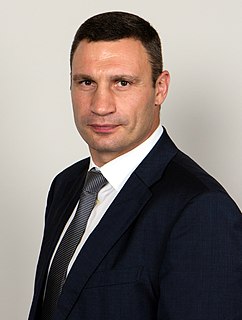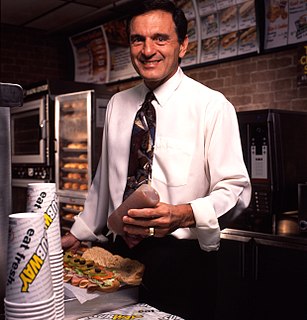A Quote by Ken Loach
What strikes me - we're apparently at the mercy of an economic system that will never work and the big question is, how do we change it, not how do we put up with it.
Related Quotes
Because of my experience in Occupy, instead of asking the question, "Who will benefit from this system I'm implementing with the data?" I started to ask the question, "What will happen to the most vulnerable?" Or "Who is going to lose under this system? How will this affect the worst-off person?" Which is a very different question from "How does this improve certain people's lives?"
If we hope to stem the mass destruction that inevitably attends our economic system (and to alter the sense of entitlement - the sense of contempt, the hatred - on which it is based), fundamental historical, social, economic, and technological forces need to be pondered, understood, and redirected. Behavior won't change much without a fundamental change in consciousness. The question becomes: How do we change consciousness?
The question is not about whether it will work or not. It's how quickly we can pull it off. Structural change will happen. When economies grow, there comes a time when you cannot rely on investment alone. We had that. The return on investment is becoming less and less. So we have to change. The old model doesn't work anymore. It's a question of speed.
How is it that we have created an economic system that tells us it is cheaper to destroy the earth and exhaust its people than to nurture them both? Is it rational to have an pricing system which discounts the future and sells off the past? How did we create an economic system that confused capital liquidation with income?
With respect to our friends in the [Iraq] region, each has its own system, each will have to make its own judgment as to whether it will change, how fast it will change, and we hope that we can help influence them as to how change comes about and what change might be better for them than other forms of change.
When I look around and see how aged cartoonists continue to work on their manga and how movie directors create new movies all the time, I understand that they would never retire. And by the same token, I guess I will still be making games somehow. The only question is whether the younger people will be willing to work with me at that far point in the future.
You never know how a film will play, whether it will be successful or not, or whether it will touch the audience. I always said to myself that whatever happens, big audience or small, that I would not let the results have an impact on my way of working. But it would be a bit silly for me to change my methods when I have a big success. That means my methods work well.
The difference between a good educator and a great educator is that the former figures out how to work within the constraints of traditional policies and accepted assumptions, whereas the latter figures out how to change whatever gets in the way of doing right by kids. 'But we've always...', 'But the parents will never...', 'But we can't be the only school in the area to...' - all such protestations are unpersuasive to great educators. If research and common sense argue for doing things differently, then the question isn't whether to change course but how to make it happen.






































